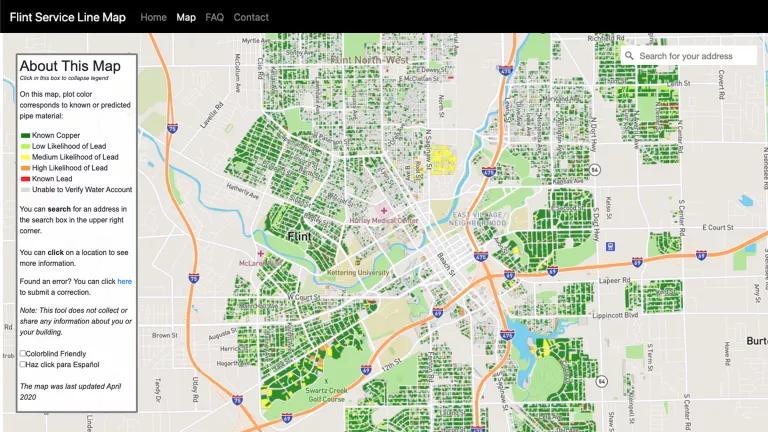Concerned Pastors for Social Action v. Khouri
Case Status
ActiveLast Update
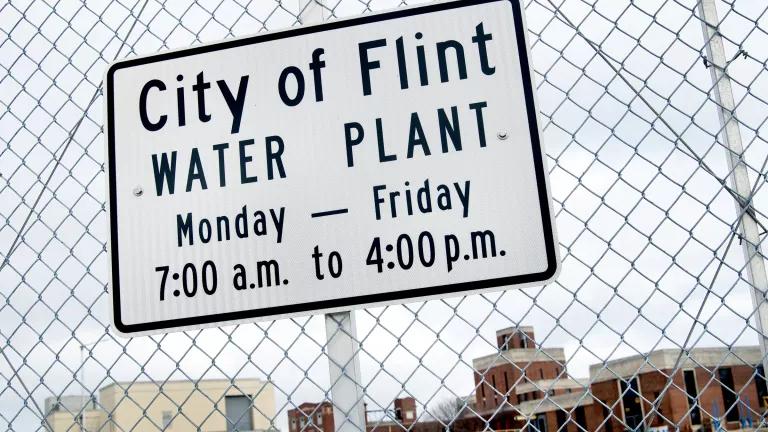
In January 2016, NRDC, Concerned Pastors for Social Action, the ACLU of Michigan, and Flint, Michigan, resident Melissa Mays filed a lawsuit against the city of Flint and Michigan state officials for unlawfully exposing the people of Flint to lead-contaminated drinking water. Our lawsuit claimed that Flint’s water system violated the Safe Drinking Water Act by failing to control and monitor residents’ drinking water for lead—a devastating neurotoxin that can severely impact the cognitive development of children. We sought a court order requiring city and state officials to replace all lead service lines in Flint at no cost to residents as well as to properly treat and monitor the city’s drinking water moving forward. Prior to filing the lawsuit, NRDC and other groups submitted an emergency petition to the U.S. Environmental Protection Agency (EPA) asking for immediate action to address this lead-contamination crisis. After the EPA failed to respond for months to this threat to Flint residents’ health, we filed suit under the Safe Drinking Water Act.
Over the course of the case, NRDC and our partners successfully defeated two efforts by Flint and Michigan officials to dismiss the lawsuit. We also secured a landmark preliminary injunction order that required the city and state to ensure that every resident had either a properly installed faucet filter or sufficient amounts of bottled water for the duration of Flint’s water crisis.
On March 28, 2017, the parties reached a settlement agreement. It required Michigan to provide $97 million to Flint for the removal of lead and galvanized steel service lines; a comprehensive tap water monitoring program, including funding for an independent monitor to confirm that Flint’s lead levels are being properly measured and reported; a faucet filter installation and education program that included regular home visits through 2018 to ensure proper filter installation and maintenance; bottled water to be made available for pickup and delivery through the summer of 2017; and guaranteed state funding for at least seven health and medical programs through the fall of 2018. In February 2019, the agreement was amended to require the city to use a more efficient method for finding the remaining lead service lines. The terms of the settlement are enforceable in federal court, and NRDC and our partners have successfully obtained multiple court orders holding Flint to its obligations under the settlement.
Implementation of the settlement continues
Pursuant to the agreement, as of the end of 2023, the city has confirmed the material of more than 26,000 water service lines, replaced nearly 10,000 service lines, and committed to identifying and replacing any remaining galvanized steel and lead service lines in the city. NRDC and our partners continue to oversee the city’s work to make sure that all Flint residents obtain the benefits guaranteed to them by the settlement.
Over the years, the city of Flint has repeatedly missed deadlines to finish required work under the agreement. It has also mismanaged its efforts to repair property damage to residents’ sidewalks, lawns, and curbs from the pipe replacement work. When the city missed an important deadline in fall 2022, NRDC and our partners went back to court to prompt the city to finish the work. This was the fifth time the plaintiffs in the case were forced to seek the court’s intervention to resolve the city’s violations of the agreement. The district court granted our motion to enforce the agreement and required the city to inspect previously excavated homes to check whether property repairs were needed. The court also set a new deadline of August 1, 2023, for the city to complete all lead service line excavations and replacements.
In spring 2023, when the city missed yet another interim deadline, NRDC and our partners filed a motion to hold the city and its mayor in contempt of court. On March 12, 2024, the federal court agreed, finding the city in contempt of a February 2023 order to reach certain milestones in its lead pipe replacement program.
Each winter, the frozen ground requires the city to pause its work to replace pipes and restore lawns, curbs, and sidewalks. As of March 2024, the city still has not met its obligations to check the service line material at all eligible homes and replace the lead service lines it finds—work that was due August 1, 2023. In addition, nearly 2,000 homes still require repairs to fix property damage. NRDC and our partners are continuing to monitor the city’s progress to make sure the remaining work is completed.

Tell the EPA we need safe drinking water!
There is no safe level of lead exposure. But millions of old lead pipes contaminate drinking water in homes in every state across the country. We need the EPA to do its part to replace lead pipes equitably and quickly.
Related Content
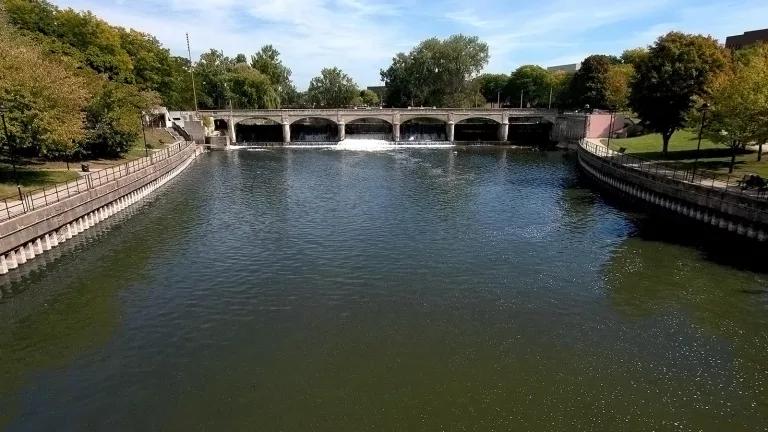
Fighting for Safe Drinking Water in Flint

Flint Drinking Water Settlement FAQ
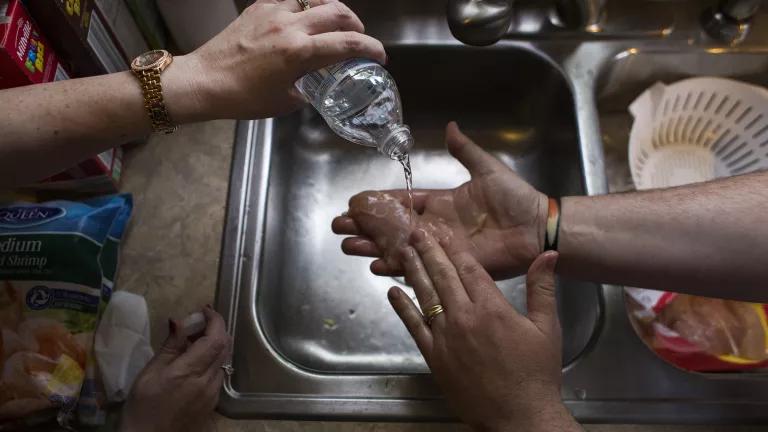
Flint Water Crisis: Everything You Need to Know
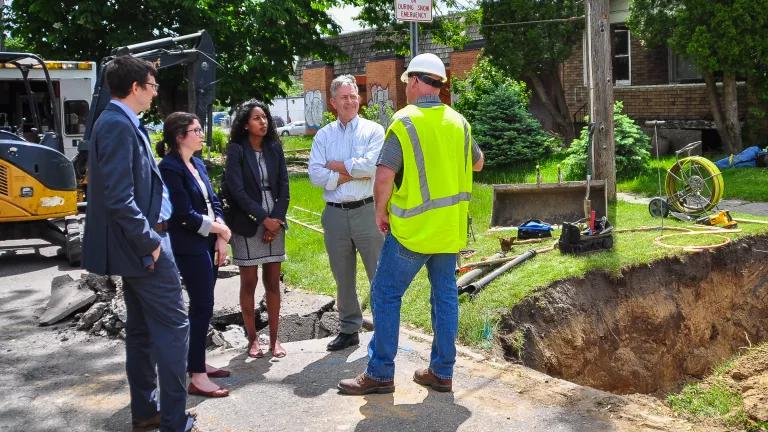
An Uphill Battle, and Persistence, in Flint

Fighting the Tide of Watered Down Justice
